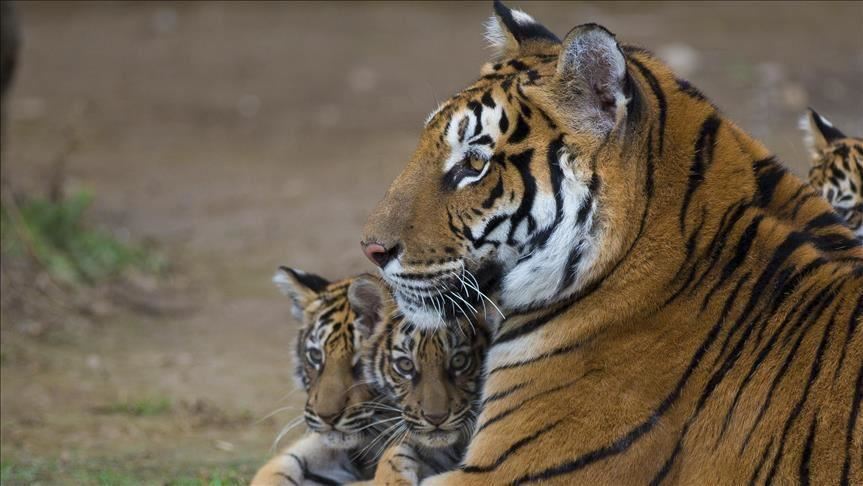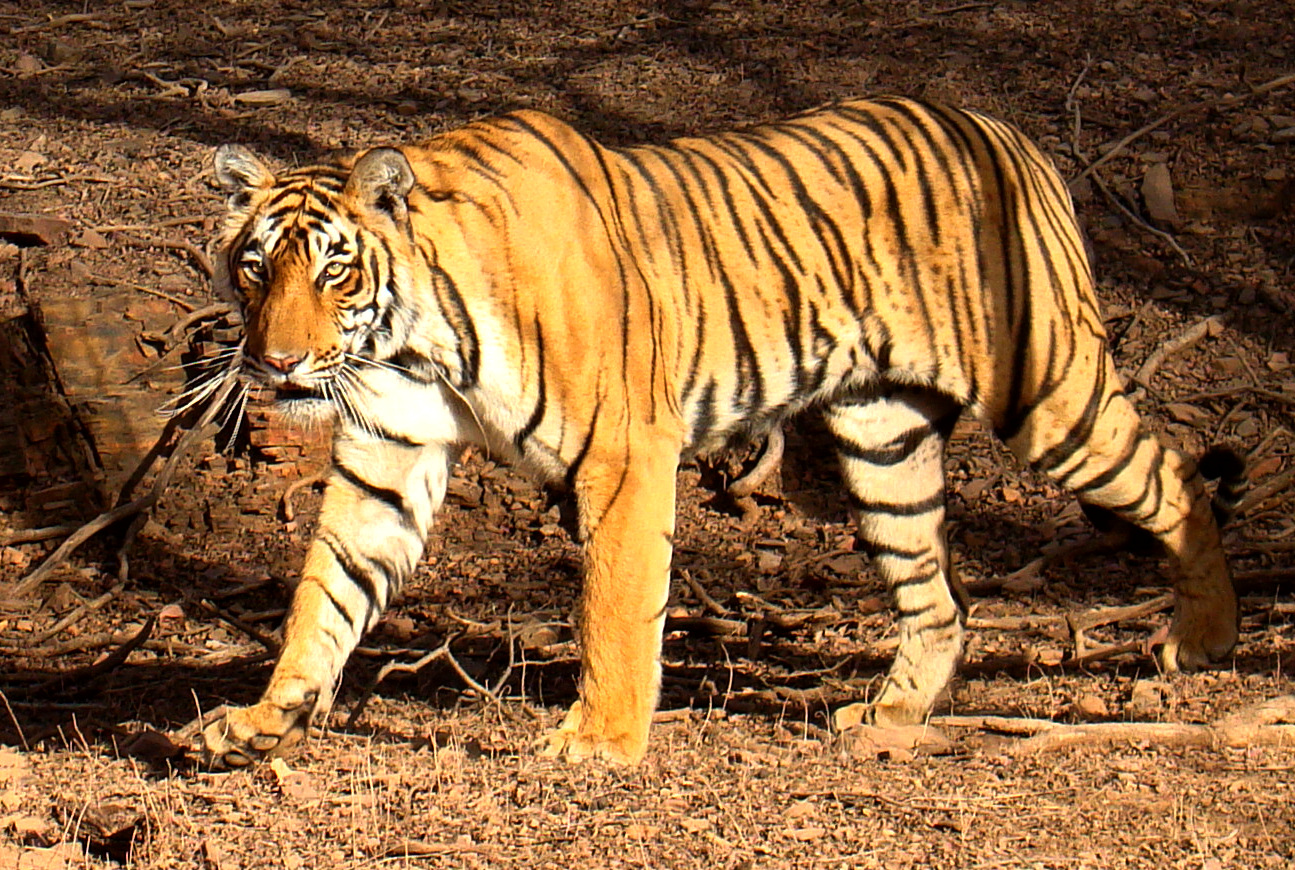 |
Mother tiger and cubs
|
Early this month,
India's 2018
Tiger Census
made it to the
Guinness Book of World Records for recording an estimated 2,967 tigers or 75 percent of the world's tiger population in the country. Although this seemed like great news, India has witnessed a tremendous spike in
poaching of the big cats during the COVID lockdown period implemented by the government.
Wildlife trade monitoring network,
Traffic, pointed out that 88 incidents of poaching were reported during the post-lockdown period from March 23 to May 3, which was nearly double the number reported during the six weeks before the lockdown. Another official data indicated that India lost 110 tigers last year, out of which one-third to poaching. A study carried out by Traffic showed that it is unclear how poaching rates increased during the lockdown, despite persistent efforts by law enforcement agencies. It further revealed that 222 people were arrested in poaching-related cases during the lockdown period across India; a surge from 85 arrests during the pre-lockdown phase. Experts think that the rise has also been noticed in the poaching of tigers' prey. A wildlife biologist named Faiyaz Khudsar stated that the loss of income and food shortages due to the lockdown forced people to resort to poaching for subsistence. In other words, as
Yadvendradev Jhala of the
Wildlife Institute of India (WII) puts, the poachers are taking advantage of the COVID crisis.
It really disturbs me how the COVID pandemic has had and continues to have a negative impact on the world's wildlife population. I have said it before and I will say it again, the lockdown is no excuse to shy away from protecting endangered wildlife around the world. Poachers are taking advantage of the situation and going around setting traps for tigers and other animals, including their prey, to make ends meet. However, it is not just poaching that is threatening India's tigers. The COVID virus itself is also a threat. This was seen in April this year when a tigress at New York's
Bronx Zoo tested positive for COVID. This news should have been perceived as a wake-up call to intensify patrolling as there is a possible virus threat to
India's tiger reserves according to Faiyaz Khudsar. If the virus enters the reserves, it will affect conservation efforts very badly. In addition, there is also decrease in habitat for tigers and other animals which forces them to stray into human habitations making them easy targets for poachers and vulnerable to disease when coming into contact with domestic animals. It is not only India where tiger populations are under threat of poaching. There is a
similar situation in
Bangladesh, where tigers are vulnerable to poaching and
shrinking habitat. I strongly urge for the need of intensive measurements in protecting populations of tigers and other animals in
South Asia. Emphasis should be on bolstering patrolling efforts in tiger reserves and other
protected areas and forming
corridors of territorial forests with extended agricultural fields to save the animals.


No comments:
Post a Comment